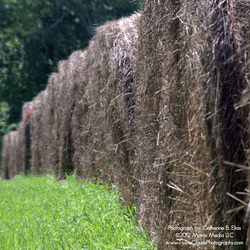Later the following events took place: Naboth the Jezreelite had a vineyard in Jezreel, beside the palace of King Ahab of Samaria. 2And Ahab said to Naboth, “Give me your vineyard, so that I may have it for a vegetable garden, because it is near my house; I will give you a better vineyard for it; or, if it seems good to you, I will give you its value in money.” 3But Naboth said to Ahab, “The Lord forbid that I should give you my ancestral inheritance.” 4Ahab went home resentful and sullen because of what Naboth the Jezreelite had said to him; for he had said, “I will not give you my ancestral inheritance.” He lay down on his bed, turned away his face, and would not eat. 5His wife Jezebel came to him and said, “Why are you so depressed that you will not eat?” 6He said to her, “Because I spoke to Naboth the Jezreelite and said to him, ‘Give me your vineyard for money; or else, if you prefer, I will give you another vineyard for it’; but he answered, ‘I will not give you my vineyard.’” 7His wife Jezebel said to him, “Do you now govern Israel? Get up, eat some food, and be cheerful; I will give you the vineyard of Naboth the Jezreelite.” 8So she wrote letters in Ahab’s name and sealed them with his seal; she sent the letters to the elders and the nobles who lived with Naboth in his city. 9She wrote in the letters, “Proclaim a fast, and seat Naboth at the head of the assembly; 10seat two scoundrels opposite him, and have them bring a charge against him, saying, ‘You have cursed God and the king.’ Then take him out, and stone him to death.” 11The men of his city, the elders and the nobles who lived in his city, did as Jezebel had sent word to them. Just as it was written in the letters that she had sent to them, 12they proclaimed a fast and seated Naboth at the head of the assembly. 13The two scoundrels came in and sat opposite him; and the scoundrels brought a charge against Naboth, in the presence of the people, saying, “Naboth cursed God and the king.” So they took him outside the city, and stoned him to death. 14Then they sent to Jezebel, saying, “Naboth has been stoned; he is dead.” 15As soon as Jezebel heard that Naboth had been stoned and was dead, Jezebel said to Ahab, “Go, take possession of the vineyard of Naboth the Jezreelite, which he refused to give you for money; for Naboth is not alive, but dead.” 16As soon as Ahab heard that Naboth was dead, Ahab set out to go down to the vineyard of Naboth the Jezreelite, to take possession of it.  "He went, laid on his bed, turned his face and would not eat." The King of Israel, the one in charge, the man with the power to do as he pleases - sulking, defeated. He wanted the vineyard beside his house to use as his own personal vegetable garden. He wanted something and was told no. And so he sulks in his room. His wife reminds him of his power and she takes charge of the outcome - creating the kind of drama that would make Desperate Housewives proud. She sent letters, creating a coalition. She hired liars. And assembled the people. Let the drama begin. The people gather - Lies are told about Naboth - Naboth is stoned to death - Jezebel goes home to her defeated husband - the King gets his heart's desire. Desire + Greed + Lies + Cruelty = Stolen Property = A Happy King  Or does it? The King knows that Naboth was right in not handing over his family vineyard. Naboth was completely within his rights to hold onto his property, his inheritance. Not even the King's hand extends into another person's inheritance. How do we understand this kind of greed for property that belongs to another? Or how do we translate rightful ownership of inheritance in our culture? In a capitalistic society where we are entitled to all that we can purchase, is there a limit to the reach of our money? In other words, just because we can afford it (or because we have the credit to buy it), is it ours to rightfully acquire? I suppose the first thing that comes to mind is buying cheap clothes - because I can - that ultimately keep people in poverty in other parts of the world. Is that wanting to make someone's vineyard into my vegetable garden? Or buying bananas - something almost every American household purchases. Almost none of us live anywhere close to where bananas are produced. It costs an enormous amount of resources from the earth to deliver those bananas to us. Is that wanting to make someone's vineyard into my vegetable garden? I don't know the answer. But I'm not done asking questions. I remember a story from Nicholas Kristof and Sheryl WuDunn's - Half the Sky: Turning Oppression into Opportunity for Women Worldwide What does it mean to want the vineyard next door for our own vegetable garden? And what is the price of taking it? In Ahab's case, he took another man's inheritance, amassing his own wealth and presumably a greater inheritance for his sons. When we read on, we find that God has planned to remove every possible heir
3 Comments
4/29/2018 09:06:25 pm
This is the kind of sermon that I want to hear. Because of wanting more, people don't realize the idea of limitation. As they keep on wanting for more and more, they don't realize that they are starting to be abusive and their limitations are being disregarded. All things that are too much will always be bad for our us, that's why we should know what is our limitations and when to stop. It's an important factor that all of us should follow. Life will be so much easier to deal with if we know that.
Reply
7/2/2019 12:40:24 pm
Let us all find contentment in our hearts. It is by finding our happiness in the Lord that we can feel this.
Reply
Leave a Reply. |
Search this blog for a specific text or story:
I am grateful for
|

This work is licensed under a Creative Commons Attribution-NonCommercial-ShareAlike 3.0 Unported License.
